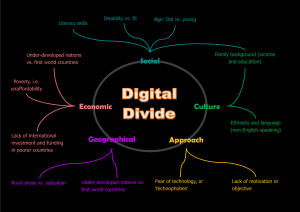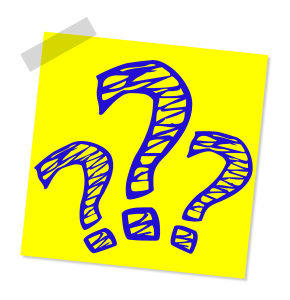Avocado Toast, Anyone?

Millennial’s (Current) Obsession. http://del.h-cdn.co/assets/16/01/1600×800/landscape-1452289733-avocado-toast.jpg
Digital writing is the Millennial of the humanities world. Everyone has an opinion on it, it’s woefully misunderstood, and there are countless articles dedicated to examining it with varying degrees of irony and self-awareness. Another thing that digital writing and Millennials have in common? Almost all of the work produced on them is not actually written by the people that are most familiar with them: Millennials. I am going to try to fix that.
Getting With the Times: The Good

https://ecudigitalwriting.files.wordpress.com/2016/07/edu-digital-writing-hands1.jpg?w=600&h=600&crop=1
Pete Rorabaugh, in his article “Organic Writing and Digital Media: Seeds and Organs,” said that in the context of digital writing and the internet, “Growth is determined by the encouragement and critique of the community” (Rorabaugh, 2012). This sentence, on its face both short and simple, is actually quite deceptive: It contains the seed of an idea that, if accepted, represents a complete paradigmatic shift in understanding what it means to write. In his article, “Digital Writing Uprising: Third-Order Thinking in the Digital Humanities,” Sean Michael Morris explains this significance quite eloquently when he says “Note that it is not ‘affected’ nor ‘influenced’ by the community. No, the growth of ideas is determined by the community. What gets said is inevitably communal. We create the choir as we preach, and the choir creates us” (Morris, 2012).
The above two quotes, when taken together, are quite profound in their implications. Within their words, they suggest that digital writing is far more than a rapid system for transmitting distant and forgotten printed works, more than a repository for previously communicated ideas. They suggest that digital writing encourages an elasticity in text that traditional printed mediums cannot replicate. Digital writing, then, actually represents a completely different avenue in which information is created, disseminated, and utilized. It provides a forum for unique contributions that are specifically designed for niche audiences and represent the result of an intensive and continuous interplay between author and reader, input and output. Sean Michael Morris puts it another way in his article “Creative Beasts With Crayons” when he says, “Digital writing is emergent writing. It mutinies at the imposition of form, the edicts of the grammars of old. It rails to change the rules. It raises the flag of anarchy. The council of digital writing is one…the frenetic joy of dismantling what came before, and the abdication of the author. It is audacious, demanding that we writers free it from the prison of specific rigor. It emerges. It revolts” (Morris, 2016).
What does this mean? Digital writing, by its very nature, seeks to fundamentally refigure traditional conceptions of writing. It creates a unique feedback loop, ensuring that authors are writing what readers want and need, but more than that, it blurs the conventional boundaries between writers and readers, creators and receivers. It grants the opportunity to ask and answer questions that were not commercial enough for print. It encourages participation, engagement, and freeform thinking that is unencumbered by the preordained norms of writing. Digital writing has led to unprecedented levels of adaptability and choice, and it has created a more responsive medium for its rapidly evolving uses. Digital writing has reshaped what it means to write in the twenty-first century.
…The Bad

https://freeman3396.files.wordpress.com/2016/03/digital-divide-factors.png
As much as it may be tempting to end the discussion here with a resounding endorsement of the importance of learning about digital writing, to do so would ignore key facets of the debate. For instance, as Tim Monreal noted in his piece “Beyond Surface-Level Digital Pedagogy“, “Without contestation or challenge, young teachers may assume digital technologies are immune to bias and inequality…My instructors were happy to introduce us to new tools, but I cannot recall one time where anything other than device or internet access was critically discussed. Power structures that may limit student/teacher agency and empowerment remain veiled, protected by the cacophonous voices (like mine) clamoring for practicality and innovation” (Monreal, 2016). Implicit in these statements is the belief that digital writing, and indeed digital technology in general, are only as important and useful as the way in which they are presented. In this vein of thought, it is important to think about how we learn about digital writing. Also implicit, then, is a claim that the way digital writing is taught in the current moment is problematic: Digital writing is utilized in the context of systemic inequities, where only those privileged enough to learn from the elite group of teachers who can actually engage critically with the medium can end up taking advantage of it. There are concerns that digital writing only benefits the wealthy, educated, and socially privileged, because only those who can afford to access the technology can make use of it in this way. Thus, paradoxically, the democratizing force of digital writing can end up contributing to the privatization of the benefits it originally set out to achieve.
…And the Ugly?

https://kajabi-storefronts-production.global.ssl.fastly.net/kajabi-storefronts-production/blogs/2968/images/SIArpkxTRoeluX0rWU6a_AdobeStock_105778543.png
Lastly, any discussion on digital writing would be woefully inadequate without addressing the problems posed by “the trolls.” As Joel Stein astutely observed, “Trolls are turning the web into a cesspool of aggression and violence. What watching them is doing to the rest of us may be even more harmful” (Stein, 2016, pg 27). They incite hatred, play on insecurities, and goad people into intense emotional states, all three of which are emblematic of humanity’s ugly underbelly. Digital writing, it could then be argued, is a mass enabler of this reprehensible behavior. Its grant of toxic anonymity promotes action without the fear of retribution, emboldening the trolls to act in ways that would simply be unacceptable in real life interactions.
However, what if that wasn’t the trolls’ full story? What if Steven Berg is correct in claiming that trolls provide a valuable source of learning for a fledgling writer? After all, Berg notes in his article “The Pedagogy of Trolls” that the presence of trolls “help students deal with personal attacks…allows them to realize that they have something meaningful to contribute; that their assignments are meaningful because what they have to say is meaningful…gives them a confidence that they cannot gain by simply turning in assignments for their professor to read and return” (Berg, 2015). Trolls may be terrible people, abhorrent even, but that does not preclude the possibility that they may provide some sort of tangential benefit to everyone else. Indeed, without trolls, it would be much harder to learn how to defend oneself, how to learn when to engage and when to ignore, and how to recognize the complexities of the human psyche. These lessons supersede the classrooms of the humanities: they shape the realities of the life.
Why Am I Even Telling You All of This?

https://pixabay.com/p-1421013/?no_redirect
Digital writing has already begun to shape my experience as a Dickinson College student, a Law & Policy major, and a citizen of this country and of this world. This course, and the skills it provides for making sense of, and contributing to, writing in and for digital environments, bears direct influence on my ability to learn and engage with the world around me. To be more specific, I can think of three concrete ways that this course has already begun to supplement and enhance my work as a student, politics enthusiast, and burgeoning legal practitioner. Firstly, writing online has broadened the scope of my ability to adapt to new formats, audiences, and styles, a contribution that has expanded my comfort with academic and personal writing. Secondly, digital writing complements my political activities well by virtue of its mission to serve the wider world and community. Finally, it has greatly bolstered my prospects for succeeding in my post-graduate education, and hopefully, even my career plans.
Do You Even Write Bro?
As I mentioned above, the first manner in which digital writing has offered a meaningful contribution to a student like me is through the lessons it has taught me in the realm of textual variability, or ability to alter and adapt my work to reflect new mediums, readers, and aesthetics. As a student in the Policy Studies department, I have been tasked with writing policy briefs designed for various governmental and interest group stakeholders and creating presentations on possible solutions to policy problems, all while navigating the preferred styles and ideological orientations of the “clients.” Clearly, then, I have been tasked with producing work in various format and tonal iterations, assignments that by their very nature must be adapted to reflect different audiences. Digital writing factors directly into this tradition, albeit with one critical caveat: It eschews conventional platforms and instead relies on the internet. This results in writing that can be read by different audiences, for different purposes, and even in different contexts, all of which are generally unpredictable. For these same reasons, digital writing has directly increased my comfort with writing in the policy realm. It has given me the experience I need to branch out into different projects that are created with different people in mind, but has also given me the mindfulness to know that my words will not always stay my own. They can be adapted for different uses, repackaged and repurposed, and they will impact every reader in unique ways. Therefore, digital writing makes policy briefing seem tame by comparison, but it has nonetheless given me the tools to excel in both.
Digital Idealism
The second reason that digital writing has benefitted me as a student is by virtue of its overlap with politics in the realms of audience engagement and participation. Digital writing, by its very nature, is democratizing and universal. It breaks down barriers to the transfer of knowledge, encourages reader participation, and seeks to make academia a more egalitarian place. These attributes complement my personal brand of politics extremely well, as I believe that any governments, and indeed any society, should strive to promote high levels of civic engagement, equality, and opportunity. Therefore, digital writing and my personal interests and worldview align, but the connection actually goes deeper. Digital writing, by showing me how to navigate the world of blogs, websites, and social media in meaningful ways, is actually giving me the ability to put my vision into action. In fact, my semester long project is actually political in nature, and it is allowing me to try to provide critical information in a way that is accessible, approachable, and easy to follow. In doing so, digital writing has taught me how to use the tools I described in the preceding paragraph in the pursuit of a universal theme and practical good, and as such, is a critical component of my education.
Digital Writing: The Elle Woods of Writing Platforms

https://i.pinimg.com/736x/cd/97/c0/cd97c0e2ec6a1f1d85ce5dedc696d3ce.jpg
Lastly, the third and final way that digital writing has shaped my personal educational experience is through the impact it has had on my legal aspirations. In the last week, I applied to seventeen law schools. Each of those applications was submitted online, using a digital writing platform, and was the result of countless emails to admissions offices, advisors, and more. The entire process was digitized, and by extension, required me to utilize a specific skillset that was shaped by the specific sensibilities of this new medium. Even more than this, however, my encounters with digital writing have already begun to prepare me for the types of work I am going to encounter at the intersection of law and politics. I mean, just think about the types of issues that dominate political and legal analysis these days: emails, leaked diplomatic cables, tweets, and more. The career path that I hope to walk is paved with the fruits of digital writing, and I am better off because I have been studying it here.
BROTUS, Becky, and the Beyhive: Popular Drawbacks of Digitized Writing
Whether you like it or not, digital writing is a ubiquitous cultural force. “Presidential” tweets dominate the news. Every single day you can rely on seeing at least one student call out their problematic great aunt Carol for her racist Facebook post du jour. Stans on Tumblr work fandoms into a frenzy over the latest perceived celebrity slights, and worst of all, there are the official purveyors of existential dread known as YouTube commenters and Reddit flamers. Digital writing has enabled the mass migration of trolls, obsessive fans, and Nazis to the forefront of our society, and may have even swayed the result of our most recent presidential election. Subsequently, one would be hard-pressed to ignore the fact that the emergence of digital writing as a dominant platform has come with an inherent power to harm both discourse and lives.
Blog Wars Episode IV: A New Hope?
Of course, there is a positive side to this digital revolution as well. News and information are more accessible than ever before, bloggers have the ability to share their knowledge and perspectives with specifically engaged audiences, and individuals from across the world are able to connect in ways that were previously impossible. Students have access to millions of sources, making research and education easier than ever before. Digital writers are gaining unique skillsets, both tactical and practical, that bring about significant skillsets inside and outside of the classroom. Education and political participation are more accessible than ever, citizen networks have banded together in the name of common causes, and the harms of society are called out in minutes. Therefore, one would be equally hard-pressed to deny that the emergence of digital writing has led to a more equitable and accountable society.
The Truth? You Can’t Handle The Truth!
I hope it is clear that digital writing is neither an irredeemable plague on society nor a panacea for all of its ills. In fact, it resembles the internet as a whole in that way. In the words of Nicholas Carr, “Enthusiasts, with good reason, praise the torrent of new content that the technology uncorks, seeing it as signaling a ‘democratization’ of culture. Skeptics, with equally good reason, condemn the crassness of the content, viewing it as signaling a ‘dumbing down’ of culture. One side’s abundant Eden is the other’s vast wasteland” (Carr, 2010, pg 2).
In the face of such a wide debate, it is easy to get lost in the rhetoric of the cultural battleground. It is all too common to be a blind proponent of one side or the other, because your ideology or morals demand it, because everyone else is doing it, or because it’s harder to think critically than it is to accept conventional viewpoints as Gospel. To do so, however, is to ignore reality. To do so mitigates the real benefits and dramatic drawbacks that define the impact of digital writing. To do so is to be yet another thinkpiece about Millennials: one-sided and largely irrelevant.
Works Cited
Berg, Steven L. “The Pedagogy of Trolls.” Hybrid Pedagogy (2015). http://www.digitalpedagogylab.com/hybridped/the-pedagogy-of-trolls/
Carr, Nicholas. The Shallows: What the Internet Is Doing to Our Brains. WW Norton & Company. (2011).
Monreal, Tim. “Beyond Surface-Level Digital Pedagogy.” Hybrid Pedagogy (2016). http://www.digitalpedagogylab.com/hybridped/beyond-surface-level/
Morris, Sean Michael. “Creative Beasts with Crayons.” Hybrid Pedagogy (2016). http://www.digitalpedagogylab.com/hybridped/creative-beasts-crayons/
Morris, Sean Michael. “Digital Writing Uprising: Third-Order Thinking in the Digital Humanities.” Hybrid Pedagogy (2012). http://www.digitalpedagogylab.com/hybridped/digital-writing-uprising-third-order-thinking-in-the-digital-humanities/
Rorabaugh, Pete. “Organic Writing and Digital Media: Seeds and Organs.” Hybrid Pedagogy (2012). http://www.digitalpedagogylab.com/hybridped/organic-writing-and-digital-media-seeds-and-organs/
Stein, Joel. “Tyranny of the Mob.” Time 188.8 (2016): 27-32.
